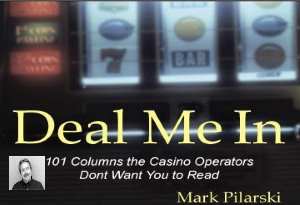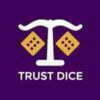Do casinos have policies regarding the minimum number of revolutions a roulette ball should make before dropping off the track? What would be considered too few? If the roulette wheel stops moving before the ball lands in the pocket or stops in less than a quarter of a revolution after the ball lands in the pocket would that be cause for concern?
Consider the following scenario. A player comes to an empty table in the morning and bets ten dollars straight up on a single number. After that spin, a new dealer is brought in who turns his head to the side and yells out “What number do I have to hit?” The player bets another ten dollars on the same number. The new dealer says, “You can’t bet on that number, you have to bet on the numbers that I pick.” What are your comments on that? Daniel D.
Casino operators, Daniel, have plenty of security procedures in place to preserve the integrity of their games, out of self-interest, as well as to protect the general public. You know the deal: Casino managers watch the shift manager, who watches the pit bosses, who watch the floorman, who watches the dealers, while the “eye in the sky” surveillance cameras, watch everything. Believe me, Daniel, the last thing a casino wants is a rogue dealer who thinks he can sector-shoot, or a player exploiting a biased wheel or dealer by clocking the wheel.
Is the wheel coming to a dead stop while the ball is circling above on the track permissible behavior? Not in any joint that I ever dealt in, or probably any casino for that matter. “Round and round and round she goes, where she drops, nobody knows” is the tune all dealers should be adhering to.
When I dealt roulette, I was trained to either speed up or slow down both the wheel and ball delivery before each spin to avoid wheel clocking, but I’ve got to tell you, Daniel, to consciously sector-shoot or pocket a particular number with the wheel going one way, the ball the other, with frets impeding a descending ball and between the pockets, make it frankly impossible to anticipate where the ball is going to land. A slowing or stopped wheel surely helps, but casino operators, for obvious reasons, just aren’t hip to that happening.
As for the dealer yelling out “What number do I have to hit?” or not allowing you to play certain numbers, well, more than likely it was just a flippant remark and/or a rude dealer. Some dealers do believe they run the asylum.
The long and short of it, Daniel, is that every casino has its own set of guidelines for its dealers to follow, as well as a few procedures I’m sure of that keep the wheel speed within a certain range, and of course, players being allowed to bet the numbers of their choosing. Calling over a pit boss and explaining your situation should correct both problems.
If a casino advertises video poker machines that can return up to100%, wouldn’t they be losing money? Glen D.
Yes, but only if every player had access to “selected machines,” and understood and used perfect basic strategy. But since “selected machines” can be fewer than a half dozen on the casino floor, and probably less than one percent of players effectively play perfect basic strategy, the casino won’t lose money by making such an offer. Oh, and Glen, one of the tricks of the trade is for the casino to surround those “selected machines” with others that have pay tables offering significantly lower payoffs, guaranteeing even more winnings from the uneducated – and therefore preferred – patrons.
Gambling Wisdom of the Week: “The stock market is a huge casino, larger by factors of magnitude than all the casinos of the world combined.” –Ion Saliu




















